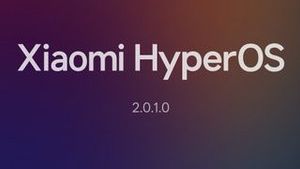JAKARTA - The pandemic conditions that have limited activities this year have not discouraged investors from entering the capital market. The figure of Han Ji-Pyeong in the Start-Up drama on Netflix also influenced the increasing public interest in investing in the capital market.
President Director of the Indonesia Stock Exchange (IDX) Inarno Djajadi said that throughout 2020, the number of investors in the Indonesian capital market consisting of investors in stocks, bonds and mutual funds experienced a rapid increase.
"So, this is indeed the year for retail investors in the Indonesian capital market," he said, when he closed the 2020 capital market trading, Wednesday, December 30, 2020.
It was recorded that the number of investors exceeded 3.87 million Single Investor Identification (SID) as of December 29, 2020. This figure increased 56 percent from the position at the end of 2019.
Of that amount, equity investors grew 53 percent to 1.68 million SID. Then, there are 94,000 active investors daily or up 73 percent on an annual basis.
For your information, daily active investors are investors who make at least one transaction a day.
In addition, active retail investors also recorded a growth of 4 times throughout 2020. As of January 2020, the average daily transaction frequency of retail investors is around 51,000 transactions, while as of December 2020 the average is around 206,000 transactions.
In line with the increasing participation of domestic retail investors, a new trade transaction record was achieved in 2020, namely the highest daily share transaction frequency on December 22, 2020, which amounted to 1,697,537 transactions.
Not only that, the presence of a financial technology platform has also contributed to the increasing number of investors in the capital market.
On the same occasion, President Director of the Indonesian Central Securities Depository (KSEI) Uriep Budhi Prasetyo said that the increase in the number of investors was supported by the process of digitizing the Indonesian capital market, particularly for the process of opening investment accounts.
The presence of a financial technology platform is also a gateway to increasing the number of investors in the capital market.

"More than 50 percent of these have accounts at fintech selling agents (financial technology). So, these individuals use fintech selling agents as their channels," he said.
Uriep is optimistic that investor growth will accelerate in the future. In fact, he projected that the number of SIDs could reach 5 million investors by 2021.
The growth of investors in the capital market seemed to be a consolation after the Jakarta Composite Index (JCI) closed in the red zone on the last trading day of the 2020 stock exchange.
[/ read_more]
In the last trading session in 2020, the JCI closed at 5,979.07 or fell 0.95 percent from the previous day. JCI performance at the end of the year was quite disappointing because it failed to maintain its position at the level of 6,000.
However, the index's performance is quite encouraging after hitting an all-time low in March 2020 at 3,911.72.
If you count from the dead end level, the JCI managed to increase by 52.85 percent. Meanwhile, when compared to the end of 2019 which was in the position of 6,299.54, the JCI at the end of 2020 was corrected by 5.09 percent.
The Role of FintechFintech has also contributed to the large number of retail investors. This can also be seen from the results of a DSResearch survey entitled Fintech Report 2020 Maintaining Growth during Pandemic which was recently released.
This research was conducted with CIMB Niaga, Ayoconnect, and Investree and involved 1,434 respondents. Thousands of respondents are divided into groups who really understand and know about fintech 8.6 percent, know and understand 18.5 percent, 20.6 percent know enough, and 52.3 percent do not have awareness of fintech.
As a result, from about 700 respondents who understand fintech, 57.3 percent of them have awareness of investment fintech services. The awareness of fintech digital wallets is 82.2 percent and paylater 72.5 percent.
The survey also stated that about half of the respondents were able to recognize four platforms. Mutual Funds Selling Agent (APERD) Bibit.id or Bibit dominate the total awareness level with 65.8 percent. Followed by Bareksa 50.3 percent, E-mas 47.7 percent, and Tanamduit 46.7 percent.
This report shows that these platforms have successfully opened wider access to investment in the community. Apart from that, marketplaces like Tokopedia and Shopee or digital wallets like Ovo also have features that allow their users to invest easily.
By collaborating with investment managers, e-commerce now makes it easy for users to buy mutual funds and gold online. There are also marketplaces that work with insurance companies.
This trend is likely not to stop in 2020. Investment managers must not be lax in preparing strategies to attract investors.
With Han Ji-pyeong[/ read_more]
PT Ajaib Sekuritas, which acquired Primasia Sekuritas in May 2020, announced that they were taking Kim Seon-Ho, a young actor from South Korea (South Korea), as a Brand Ambassador. This can serve as an example to attract more capital market investors.
Kim's prestige rose in Indonesia after playing Han Ji-pyeong, a startup investor, in the Start-Up series. The Co-Founder and CEO of Ajaib Group Anderson Sumali said that the collaboration will be implemented in early 2021.
Ajaib spoke up about the decision to choose Kim or Han Ji-pyeong as Brand Ambassador. The reason is because Kim's character in Start-Up is considered to be able to inspire millennials in Indonesia to start investing.

The reason is that the character Han Ji-pyeong is described as a successful young person even though he comes from an orphanage, and his success is achieved by working hard and starting to invest from school.
Anderson said the character Han Ji-pyeong is the right person to represent that success and financial independence can be achieved at a young age by starting to invest, regardless of background or social status.
"Ajaib's big dream is to help millennials in Indonesia to become financially independent by providing education and access to online stock investment through the Ajaib application. So that Han Ji-Pyeong's success is also very possible for millennials in Indonesia," he said, in a written statement, 30 December 2020.
On a previous occasion, Anderson also stated that the low transaction costs of buying and selling shares are one of Ajaib's strategies in attracting domestic retail investors.
Anderson claims that Ajaib is one of the securities that offers the cheapest transaction fees in Indonesia.
Quoted from its official page, Ajaib offers a brokerage fee for daily trading of less than IDR 150 million, only 0.1 percent; the range of Rp150 million to Rp1.5 billion was only 0.09 percent; and more than Rp1.5 billion of 0.08 percent for share purchase and sale transactions, respectively. However, this does not include the levy fee of 0.043 percent; VAT brokerage fee of 10 percent; and final income tax for sales transactions of 0.1 percent.
So far, Ajaib noted that there has been an increase in the number of online retail transactions by more than 50 times since the start of the COVID-19 pandemic and educating more than 1 million beginner investors.
[/ read_more]
The English, Chinese, Japanese, Arabic, and French versions are automatically generated by the AI. So there may still be inaccuracies in translating, please always see Indonesian as our main language. (system supported by DigitalSiber.id)








